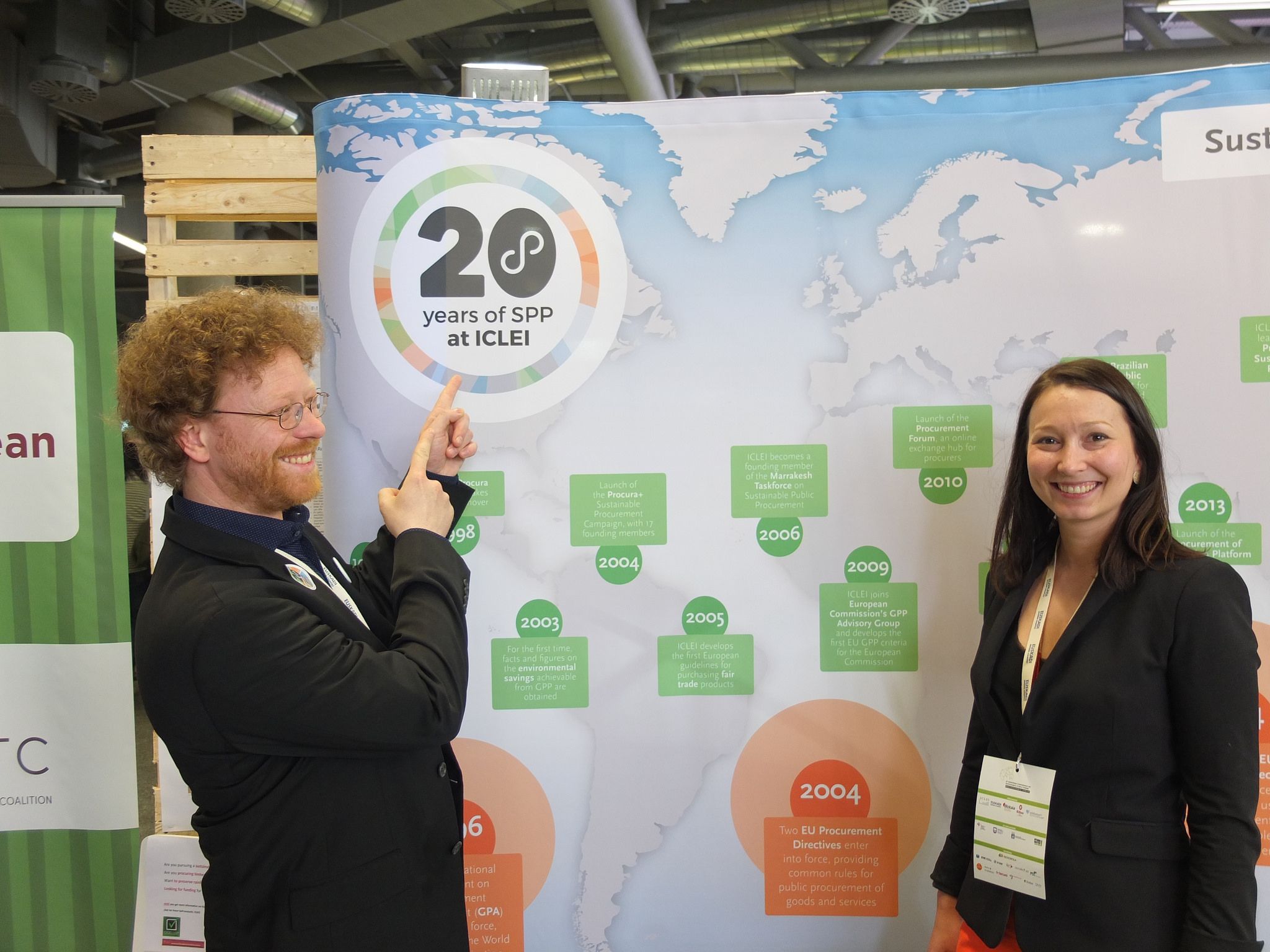ICLEI celebrates 20 years of work on Sustainable Public Procurement
ICLEI is celebrating 20 years of work on sustainable procurement. Sustainable procurement brings environmental, societal and economic benefits at the local level, and can help drive the market towards sustainability. Over the last 20 years, through its activities on sustainable and innovation procurement, ICLEI has been involved in 150 projects; organised 100 conferences, seminars and workshops; trained over 2,000 people; supported 300 cities in more than 50 countries, and saved 1 million tonnes of CO2.
ICLEI started working on sustainable procurement in 1996, with a survey on the purchasing practices of European local authorities. In 1998, the first EcoProcura – a Conference series dedicated to sustainable procurement – took place in Hannover, Germany. Another important milestone of these first years was the study “Environmental relief through green public procurement in Europe” (RELIEF), carried out between 2001 and 2003, which for the first time provided quantified figures on the potential environmental benefits of green public procurement in Europe.
Over the last two decades, many ICLEI Members have been including sustainability criteria in their procurement policies and procedures to achieve resource efficient, low-carbon and socially responsible societies. ICLEI has also worked with sustainable procurement experts from cities across Europe on numerous projects and initiatives related to SPP. These include specific initiatives such as installing 20,000 energy efficient light bulbs in Copenhagen (Denmark), broad policy aims such as Rotterdam’s (The Netherlands) commitment to 100 percent green procurement from 2015 onwards and European-wide initiatives such as theGPP 2020 project, which has brought together central purchasing bodies across Europe to achieve savings of over 700,000 tonnes CO2e to date. Sustainable procurement has become increasingly integrated at the local, national and international levels. The introduction of voluntary European GPP criteria for key product groups in 2008 and their subsequent expansion is a good example of this.
The launch of the Global Lead City Network on Sustainable Procurement in 2015 saw cities from five continents committing to report against quantifiable targets, providing a clear indicator of the impact sustainable procurement can have in different countries. Together, the cities have a powerful, unified voice advocating for sustainable procurement in the international community into the future.
“In 20 years a lot has been achieved in the field of sustainable procurement. We have had the pleasure of working with committed and creative experts from cities large and small to develop and implement sustainable procurement strategies which have helped to create low-carbon, socially responsible societies.The work done so far provides a good basis for continuing to strengthen our relationships and contribute positively to the sustainable and innovation procurement community over the next 20 years,” said Mark Hidson, Global Director of ICLEI’s Sustainable Procurement Centre.
ICLEI is celebrating this anniversary with a social media campaign designed to recognize that sustainable procurement is built on the basis of a broad community of experts working together. Organisations or public authorities involved in sustainable procurement are invited to share their achievements and thoughts on SPP using the hashtag #SPPecialists. We look forward to seeing what the next 20 years will bring.






